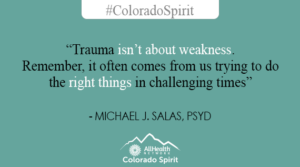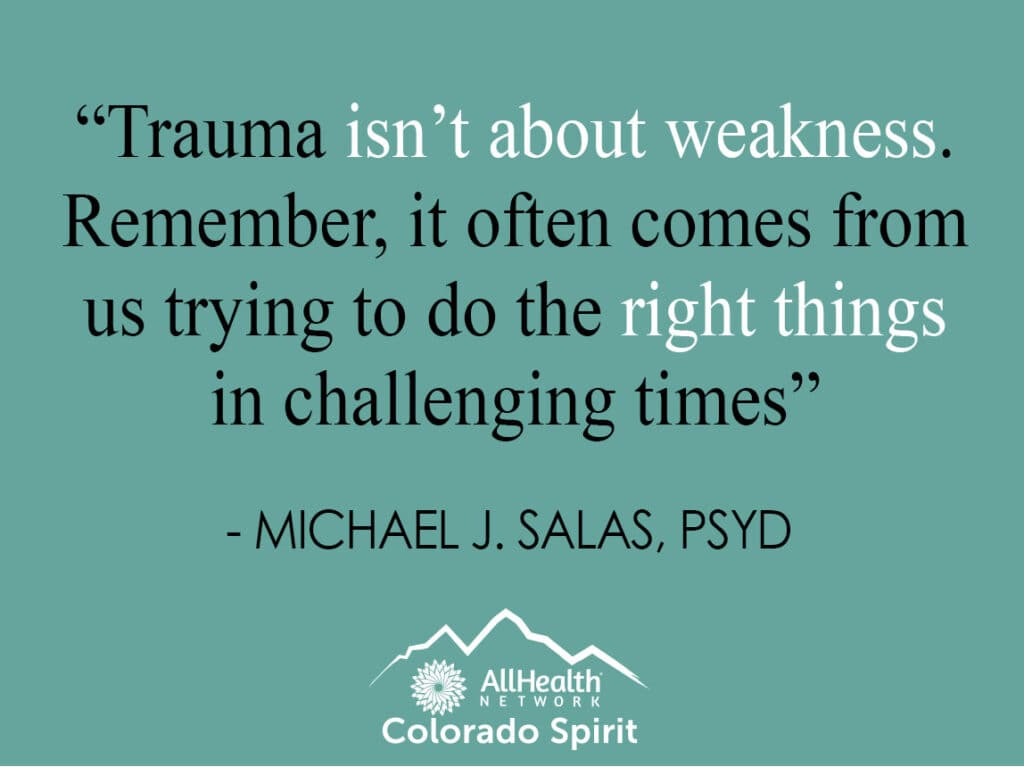There has been a huge focus on the medical aspects of the current pandemic – rightfully so! As behavioral health providers, we are also thinking about the impact on behavioral health. Unfortunately, a pandemic is a perfect storm of sorts – it stresses and strains people’s resources and coping skills, cuts them off from natural social supports, and has multiple of different fear triggers. Additionally, the high stress levels we are facing right now are not something we as humans are designed to weather for sustained periods of time. As Brené Brown said in a recent interview with CBS: “Adrenaline has a short shelf life. It cannot fuel us through a crisis that lasts for six weeks. And adrenaline is, man, it’s hard on our bodies.” This makes us in the behavioral health world very aware of how this experience mirrors trauma.
Adrenaline has a short shelf life. It cannot fuel us through a crisis that lasts for six weeks. And adrenaline is, man, it’s hard on our bodies.” This makes us in the behavioral health world very aware of how this experience mirrors trauma. – Brené Brown
As providers supporting people with recovery after traumatic events, here are a few things we would like to share:
- Recovery from traumatic events is not linear! – Often times we expect ourselves to feel a little bit better every day and can be shaken if we have a day that feels “worse”. This shifting – day by day or even sometimes moment by moment – is completely natural.
- Recovery takes time – How much time is different for everyone. We sometimes are critical of ourselves if we think others have moved “past” events quicker than we have or we may even judge others if they seem stuck. There are many things that influence each individual’s recovery
 process, so be gentle with yourselves and others.
process, so be gentle with yourselves and others. - What helps one person may or may not help someone else – Just like we shared last week when discussing anxiety, finding what works for you in the moment is helpful. What is helpful for you today, might not be helpful tomorrow. What is helpful for a friend might not be helpful for you.
- Use anxiety and stress management skills – Because stress, anxiety, and trauma have some things in common, the same strategies you use to calm yourself when you are anxious or overwhelmed can be helpful for moving forward after traumatic events.
Would speaking to someone help?
AllHealth Network, along with other community mental health centers, is continuing to provide services via telehealth and by phone. Our Crisis Walk-in Center remains open 24/7 and offers in-person care to those experiencing a mental health crisis. For more information and to get connected with our services, please call 303-730-8858. To learn more about what other community mental health centers are doing, please visit the Colorado Behavioral Health Council COVID-19 website.
If you are experiencing a mental health crisis and are in need of immediate assistance, please call the Colorado Crisis Hotline at 1-844-493-TALK (8255) or text TALK to 38255
How do you know if you’re experiencing a mental health crisis? Click here to learn about mental health crisis warning signs to look out for from the National Alliance on Mental Illness (NAMI)


